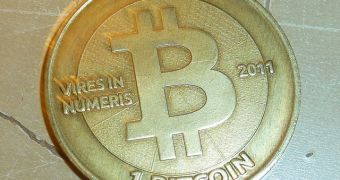An unclassified FBI report obtained by Wired reveals that the law enforcement agency is ever more concerned about the popular virtual currency known as Bitcoin. This is caused by two of its main characteristics: it’s decentralized and it’s based on peer-to-peer networks.
The Bureau fears that Bitcoin “provides a venue for individuals to generate, transfer, launder, and steal illicit funds with some anonymity.”
The agency is well aware of the fact that all virtual currencies present the same benefits for criminals, but they believe that Bitcoin is even more problematic because of the algorithms that fuel it.
While there are benefits to the fact that the currency isn’t coordinated by a central server, cybercriminals can easily attack individual wallets and third-party services. These situations were demonstrated on numerous occasions in the past.
“Since Bitcoin does not have a centralized authority, law enforcement faces difficulties detecting suspicious activity, identifying users, and obtaining transaction records – problems that might attract malicious actors to Bitcoin,” the report details.
“Bitcoin might also logically attract money launderers and other criminals who avoid traditional financial systems by using the Internet to conduct global monetary transfers.”
Officially, transactions made with Bitcoins are not anonymous, but the way the system is built allows users to perform untraceable operations if they route traffic through an anonymizer, create different addresses for each payment, or rely on specially designed laundering services.
The FBI also provides a few examples of situations in which cybercriminals utilized the currency to perform their illegal tasks. For instance, back in October 2011, the mastermind behind the infamous ZeuS Trojan only accepted payments via Bitcoin, Liberty Reserve and WebMoney.
The shady online marketplace known as Silkroad also accepted only “anonymous” types of payments. In June 2011, FBI sources found out that even the LulzSec group was raising virtual funds to purchase a botnet.

 14 DAY TRIAL //
14 DAY TRIAL //